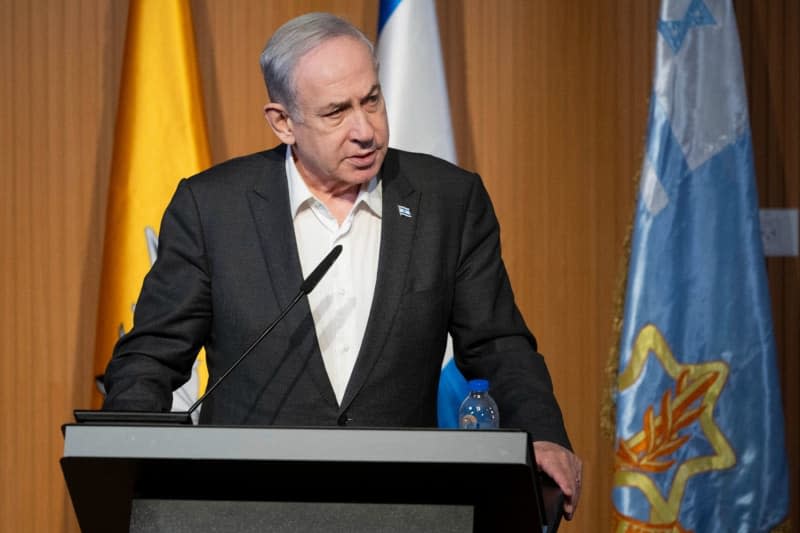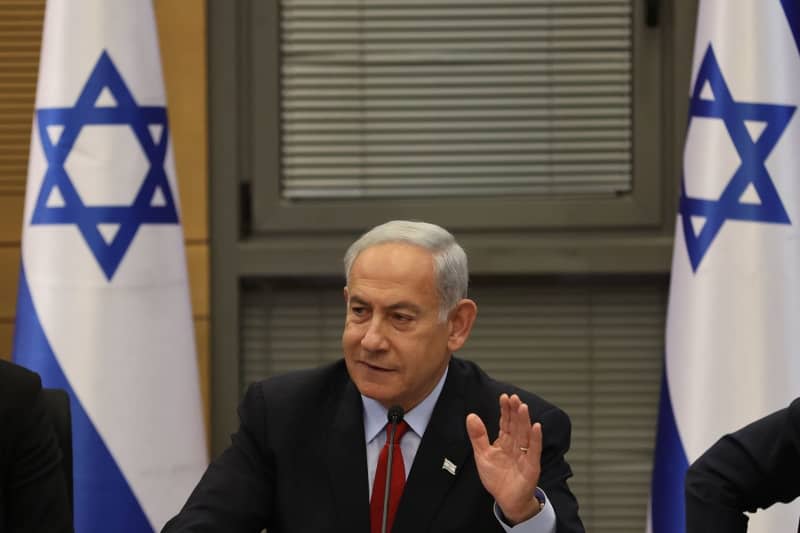Netanyahu says Israel will enter Rafah despite international concern

- Oops!Something went wrong.Please try again later.
The Israeli army will enter the city of Rafah in the south of the Gaza Strip despite international warnings, Prime Minister Benjamin Netanyahu has said.
"There is international pressure to prevent us from entering Rafah and completing the work," Netanyahu told soldiers on Thursday, according to his office.
He said he has been rejecting this pressure and will continue to do so.
"We will enter Rafah," Netanyahu was quoted as saying. "We will complete the elimination of Hamas' battalions. We will restore security and we will bring total victory for the people of Israel and State of Israel."
In Rafah, a city on the border with Egypt, an estimated 1.5 million Palestinians are seeking refuge from the fighting in other areas of the Gaza Strip in cramped conditions. Aid organizations are warning of many more civilian casualties if Israel launches a full-scale military operation there.
Many countries are criticizing the actions of the Israeli military in the Gaza Strip in light of the dire humanitarian situation. From Israel's point of view, however, victory over Hamas is not possible without an operation in Rafah because it fears a resurgence of the terrorist organization after the war.
The war was triggered by a massacre in which militants from Hamas and other extremist groups murdered around 1,200 people and kidnapped 250 others in Israel on October 7.
At least 31,341 Palestinians have been killed and more than 73,000 injured in Israeli attacks on Gaza since October 7, according to the Hamas-run Health Ministry.
Israeli media reported the the armed forces plan to move Gazans to to "humanitarian islands" in the centre of the sealed-off coastal area ahead of a military operation in Rafah.
Their relocation to designated areas will take place in coordination with international actors, army spokesman Daniel Hagari was quoted as saying by the Times of Israel.
He did not say when the evacuation would take place or when the offensive on the city would begin.
Egypt called on Thursday for an increase in aid deliveries to the Gaza Strip by land, even airdrops of food and supplies pick up pace over Gaza.
Egyptian Foreign Minister Sameh Shoukry said after a meeting with his Spanish counterpart José Manuel Albares in Cairo that any means of increasing aid deliveries would be welcome.
At the same time, he warned that the construction of a temporary port planned by the US on Gaza's Mediterranean coast would take too long. "We have to be realistic," said Shoukry, pointing out that land corridors are available right now and should be used.
According to Shoukry, around 200 lorries currently enter the Gaza Strip every day at the Rafah border crossing. However, this is still not enough to supply the suffering population. On the Egyptian side, there is a long queue of lorries waiting to be let in.
Aid groups are pushing Israel to open the six border crossings under its control to aid transports.
Cairo is also doing everything it can to achieve a ceasefire and give the UN Palestinian Relief and Works Agency (UNRWA) the chance to receive and distribute aid, Shoukry added.
Meanwhile, one person was critically injured in a knife attack in southern Israel on Thursday, according to the country's paramedic service.
The police said that "the terrorist who carried out the knife attack was eliminated at the scene."
The incident took place at a petrol station in Bet Kama in the Negev Desert.
There has been an increase in attacks by Palestinians in Israel and the occupied West Bank over the past two years and the situation has worsened since the start of the Gaza war more than five months ago.


